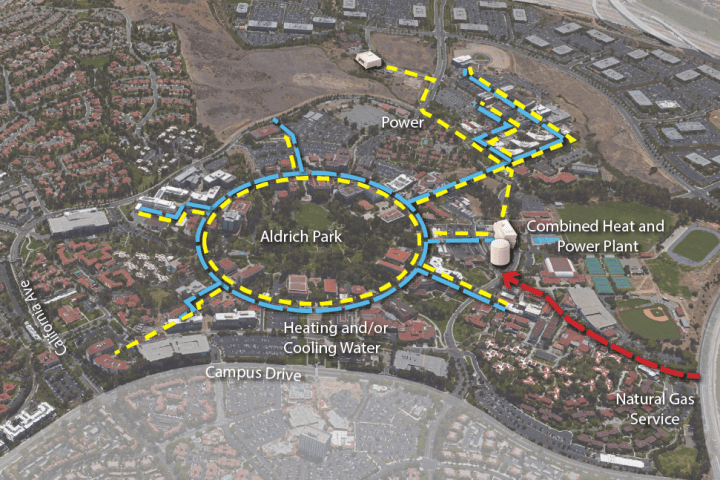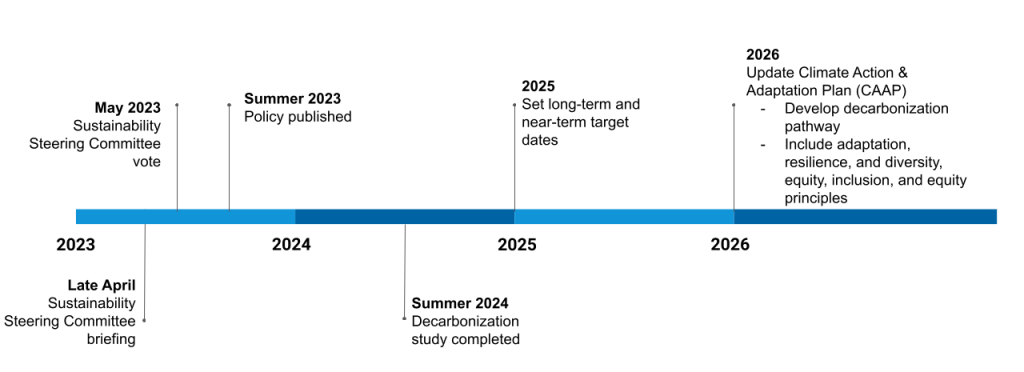
UCI embarks on decarbonization study
To strengthen the University of California’s commitment to reducing fossil fuel use at all campuses and medical centers, the UC has adopted stronger climate action goals that support California’s recently adopted decarbonization policy, the AB1279 Climate Crisis Act. The updated goals prioritize direct emission reductions, limiting the use of carbon offsets, and align the UC’s climate objectives with those of the state.
The UC’s new climate policy puts in place a framework and timetable for campuses and academic health centers to decarbonize by 2045, corresponding with a 90 percent decrease in greenhouse gas emissions. The targets for reducing emissions get progressively larger for 2030, 2035 and 2040.
To address this complex challenge, UCI has embarked on a yearlong study to determine the best path toward decarbonization. Funded by the UC Office of the President, the effort will develop a strategy to cut emissions by at least 90 percent no later than 2045. It will also identify just transition considerations and opportunities to bridge this transition with UCI’s mission of research and education.
The study is being led by Facilities Management, which is working with a consulting engineering firm, Black & Veatch, and an advisory group of UCI staff, faculty and student representatives to provide recommendations to campus leadership and the UC’s Global Climate Leadership Council through the Pathways to Fossil Free UC Task Force.
“Our biggest challenge to decarbonize and meet the new policy targets is also one of our greatest assets,” said Joseph Fleshman, UCI’s interim director of energy and engineering and head of the decarbonization study advisory committee. “The central plant provides reliable power, heating and cooling to the academic core and health sciences district. However, over 90 percent of UCI’s greenhouse gas emissions associated with operations come from the combustion of natural gas at our central plant.”
UCI has reduced greenhouse gas emissions significantly since the first UCI Climate Action Plan was developed in 2007. Close to 20,000 metric tons of these emissions have been avoided due to campuswide energy efficiency projects, the addition of solar power, green buildings and carbon-free electricity purchased through the UC Clean Power Program.
“Despite the progress we have made – while experiencing significant university growth – climate science calls for direct emission reductions from fossil fuel use no later than midcentury,” said UCI’s principal physical planner, Matt Deines, a member of the UC’s Global Climate Leadership Council and Pathways to Fossil Free UC Task Force. “The decarbonization study is our first step in identifying a path forward to replace fossil fuel use on our campus.”
The study will be completed this summer. The results of all campus and health location studies will be shared with the task force and UC President Michael Drake.

– Sheri Ledbetter/UCI
